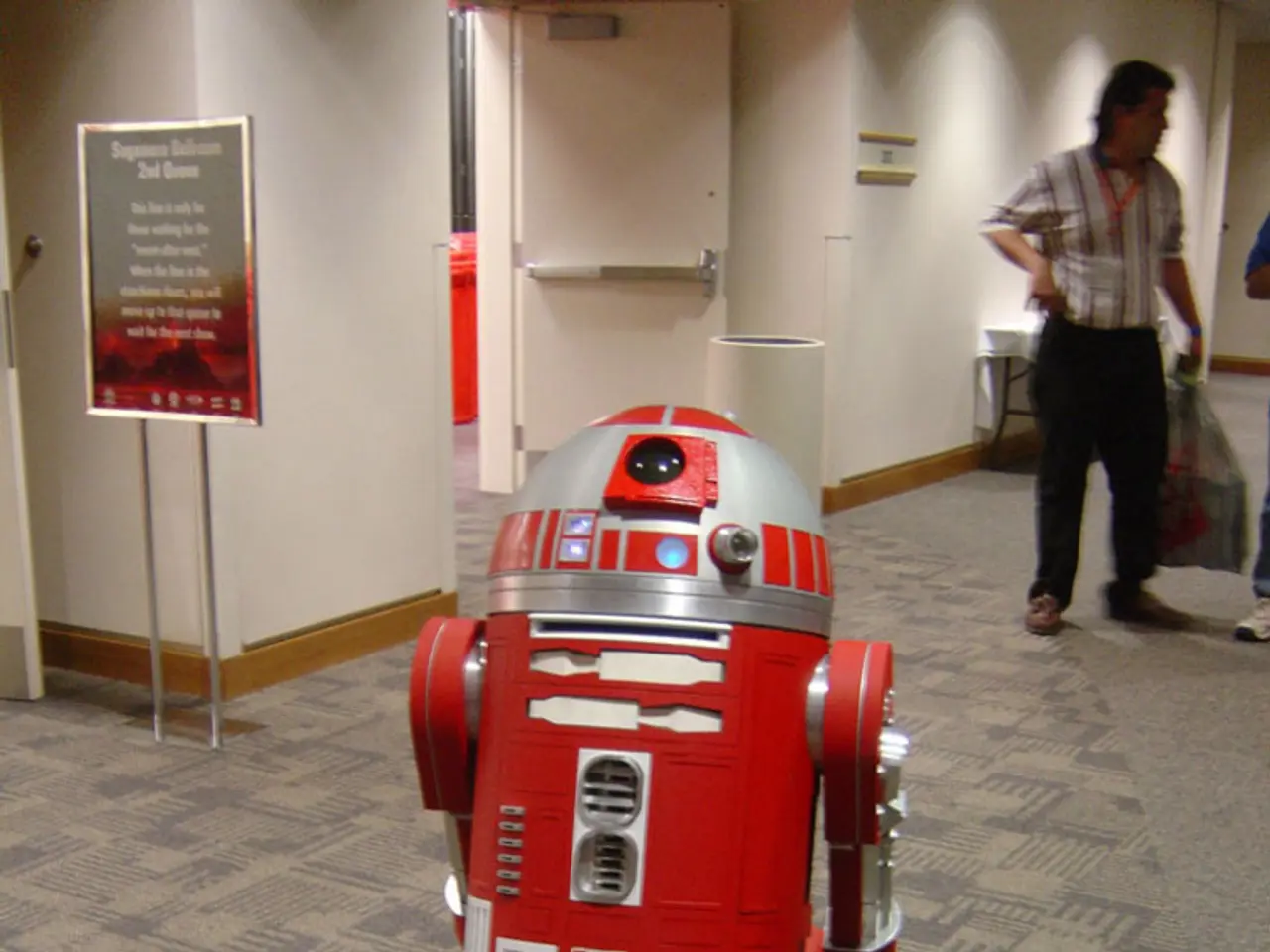Redefining hospitality automation through human-like robots that are task-focused
KEENON Robotics, a leading player in the commercial service robot market, has made a significant stride in the world of artificial intelligence. At the World Artificial Intelligence Conference 2025, the company unveiled XMAN-F1, a humanoid service robot, demonstrating its ability to handle tightly defined service tasks with broader versatility as a long-term ambition.
The unveiling of XMAN-F1 was a crowd-drawing feature at the conference, showcasing the robot's fluid movements and naturalistic gestures. KEENON's Pudong, Shanghai headquarters houses a compact showroom where restaurants, hospitals, and cleaning models are fine-tuned as they navigate ramps and narrow corridors.
In the bar area, XMAN-F1 was shown working alongside KEENON's T10 delivery robot to craft and serve bespoke beverages. This demonstration served as inspiration for KEENON's near-term goal, which is reminiscent of Tesla's Optimus serving popcorn at a Los Angeles Supercharger station.
KEENON's strategy for deploying their humanoid robots is to take a gradual, practical approach. They plan to focus initially on simple, repetitive tasks rather than creating an all-purpose humanoid robot immediately. Their deployment plan involves evolving capabilities step-by-step—from handling single tasks to multiple tasks and expanding from limited versatility to broader functionalities over time.
XMAN-F1, developed by KEENON Robotics, relies on multimodal interaction and large language model technologies to interact with its surroundings and perform tasks autonomously. The robot was demonstrated in collaboration with the company's M104 logistics robot, forming a "closed-loop smart healthcare solution."
KEENON Robotics is conducting proof-of-concept trials with clients to integrate humanoids into hospitality and delivery workflows. These trials aim to generate the physical-world data needed to train these systems. KEENON argues that years of environmental data collection and electromechanical manufacturing experience give it an edge as it moves toward humanoids.
KEENON has sold more than 100,000 units and expects sales to rise by 50% this year. According to an IDC report cited by the company, KEENON's share of global commercial service robot shipments is 22.7%, and its share of food delivery robots is 40.4%. With such a strong market presence, KEENON is well-positioned to lead the way in the development and deployment of humanoid service robots.
[1]: Source: KEENON Robotics press release [3]: Source: World Artificial Intelligence Conference 2025 proceedings
- KEENON Robotics' innovative approach to artificial intelligence, as showcased by their humanoid service robot XMAN-F1, is rooted in science and technology, leveraging multimodal interaction and large language model technologies.
- The future of automation in the service industry is being pioneered by KEENON Robotics, who are gradually implementing humanoid robots, first focusing on simple, repetitive tasks, before expanding their capabilities for broader functionalities in the realm of technology and innovation.
- KEENON Robotics' deployment strategy for humanoid robots, such as XMAN-F1 and T10, involves working closely with clients to integrate these robots into hospitality and delivery workflows, using data collected in real-world environments to train these systems, ultimately positioning KEENON at the forefront of the commercial service robot market.




